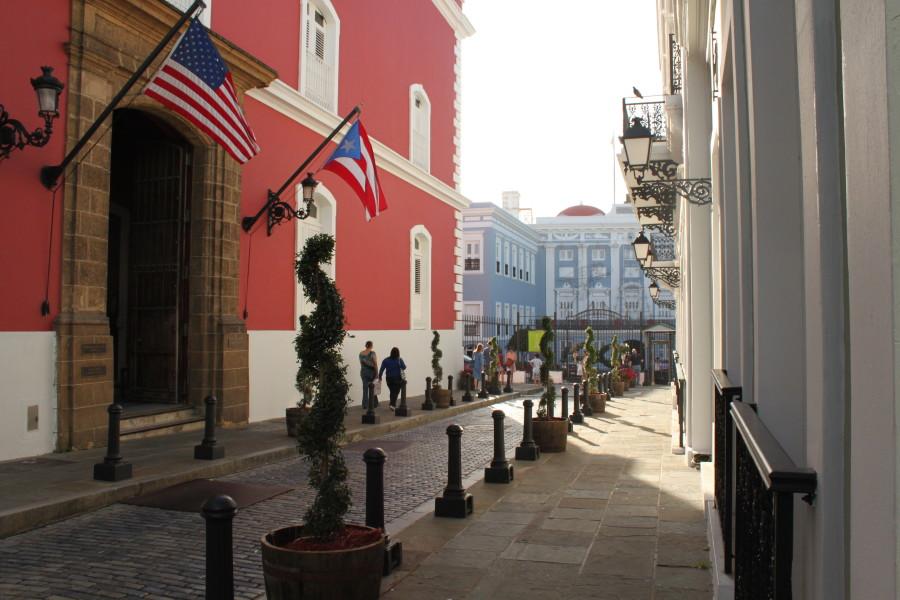
Street in Puerto Rico. Photo courtesy of Eva Sotomayor
Puerto Rico voted last Tuesday to approve a non-binding referendum that would make the island the 51st U.S. state. Puerto Rico has been operating under commonwealth rule, and in a two-part vote, the people of Puerto Rico were asked to reflect on their 114-year relationship with the U.S.
The first part of the vote asked Puerto Ricans whether they are happy with the current relationship as a U.S. territory. Less than half of voters, 46 percent, said they were happy and 54 percent said they wanted to change the relationship.
While citizens in Puerto Rico are considered U.S. citizens, they cannot vote in presidential elections. The resident commissioner in the House of Representative has also limited their voting power.
The second part of the referendum asked Puerto Ricans if they wanted to change their relationship with the U.S., and if so, how. Five percent of voters called for independence, 33 percent called for a sovereign free association, and, in a landmark result, 61 percent favored statehood.
Puerto Ricans have voted on statehood three times before, but this was the first time when the majority of citizens voted in favor. While this referendum was supported by a majority, it is non-binding and requires approval from Congress before being implemented. The party currently in power in Puerto Rico is in favor of the commonwealth, so it is improbable that a change to statehood would be approved at this time.
Jose Fossas, a sophomore in the College of Arts & Sciences from San Juan, Puerto Rico, does not like the idea of Puerto Rico becoming a state. He said the cultural differences between Puerto Rico and the U.S. are a reason not to create a 51st state.
“Becoming a state is the total destruction of the Puerto Rican culture,” Fossas said. “It doesn’t matter how Americanized we are already – we still have our own culture and identity. We are a different people, we are not Americans and we have our own culture.”
Justin O’Brien, the executive director of the U.S. Council for Puerto Rican Statehood, disagreed with Fossas. He told ABC News that if Puerto Rico becomes the 51st state, it would open Puerto Rico to U.S. government programs like supplemental Social Security.
Joanne Vazquez, a sophomore in the College of Business Administration from Puerto Rico, said she does not see Puerto Rico becoming a state in the near future.
“Maybe in a couple of years, but not right now,” Vazquez said.
